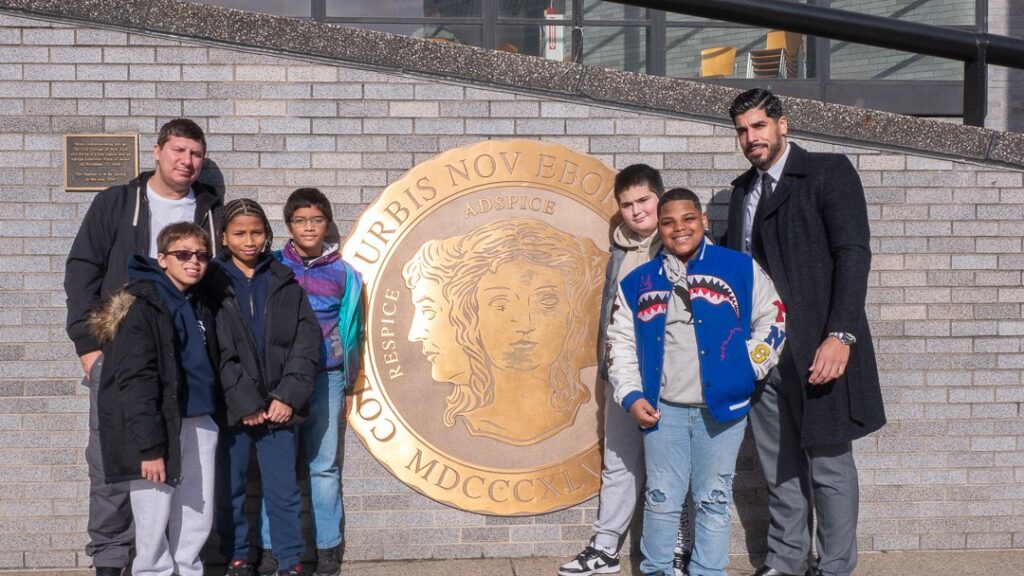
By Jason Baez, Executive Director of Yonkers My Brother’s Keeper
Last month, I had the privilege of accompanying 16 fifth- and sixth-graders from Yonkers Public Schools to City College of New York, my alma mater. I intentionally chose to bring younger students as a way to start the college conversation earlier. Too often, discussions about college begin in high school, when many students have already started to form limiting beliefs about their potential. By starting these conversations earlier, we create opportunities for students to explore their potential and develop a mindset that values education as a pathway to success.
Last month’s visit to City College encouraged students to dream bigger and think differently about their futures. For many students, it was their first time on a college campus. Their excitement was evident as they wandered the campus with curiosity and wonder. They peppered us chaperones with thoughtful questions about student life and career opportunities, connecting their current education to future possibilities as they explored the campus.
At a panel discussion with City College students and staff, we shared personal stories about our academic journeys, inspiring students with real-life examples of perseverance and success. During our walk-and-talk tour of the campus, students’ enthusiasm was infectious. As we toured the campus, students marveled at the towering buildings and imagined themselves studying in the library’s quiet spaces. One student, captivated by the idea of college athletics, eagerly asked questions about the gym. These moments highlighted how new experiences like this help students see higher education as a real and reachable goal.
As the Executive Director of Yonkers My Brother’s Keeper (Yonkers MBK), this visit resonates deeply with our mission of helping boys and young men of color succeed at every stage of their lives. Yonkers MBK is grounded in six key milestones, including Milestone Four: “Completing postsecondary education or training.” By exposing students to college early, we show them what’s possible. This helps them start thinking about their long-term goals well before high school, a time when limiting beliefs and societal pressures can take hold. Yonkers MBK is one of only four cities nationally recognized as an MBK Model Community by the Obama Foundation.
Diversity in education plays a vital role in shaping student success. In New York City, nearly half of the male student population comes from Black, Latino, or Asian backgrounds, yet less than 10% of educators reflect this diversity. Programs like NYC Men Teach work to address this disparity by recruiting and supporting men of color in becoming educators.
As a mentor and ambassador of NYC Men Teach, I know how powerful representation can be in helping young students envision their futures and see themselves reflected in spaces of success. This initiative not only diversifies the teaching workforce but also ensures that students of color see relatable role models who inspire them to aim higher.
During the City College visit, students expressed how meaningful it was to hear from someone who shared their background and experiences, helping them connect the idea of college to their own lives. Representation in both classrooms and experiences like these empower students to envision themselves succeeding in spaces where they may not have seen themselves before.
Introducing students to college and career pathways at a younger age opens opportunities they may not have considered before. Educators have a crucial role to play in starting these conversations early. Starting these conversations in elementary and middle school gives students more time to shift their perspectives and build the confidence needed to pursue postsecondary education. Without this early exposure, many pathways may already feel out of reach by the time they reach high school.
This trip to City College shows how starting the college conversation earlier helps students see the connections between their education today and their future opportunities. Experiences like these empower students to see themselves succeeding and transform higher education from an abstract idea into an achievable reality.





